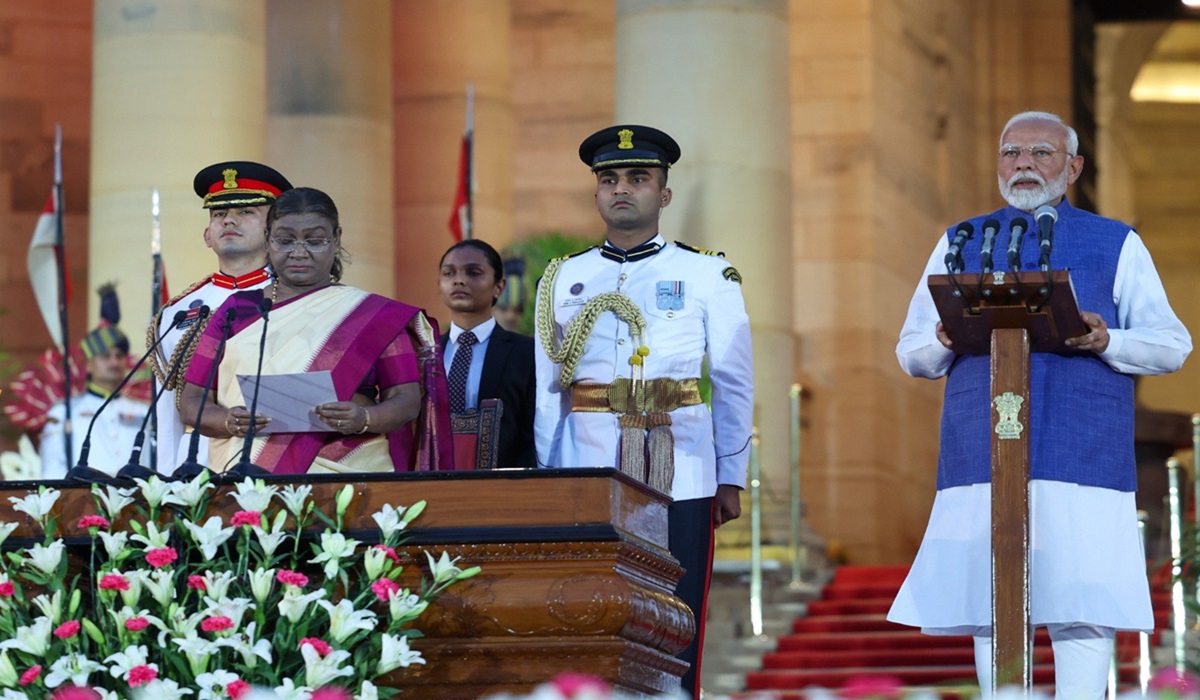India’s Prime Minister Modi, Elected To Another 5-Year Term
- Naomi Dela Cruz
- South Asia
- Trending
- June 9, 2024

Image Credit, Modi, Socia Media
Prime Minister Narendra Modi’s Bharatiya Janata Party (BJP) has secured another five-year term in office following the latest general elections. While the BJP remains the dominant force in Indian politics, this victory did not come with the sweeping majority they once enjoyed. In key provinces such as West Bengal, Maharashtra, and Punjab, the party experienced a significant decline in voter support, reflecting a more divided electorate and highlighting the challenges Modi’s administration will face moving forward.
The election results indicate that although the BJP retained power, they did so with a diminished majority, necessitating a coalition with smaller parties to form a government. This coalition introduces a new layer of checks and balances that were absent in the previous administration, potentially leading to a more balanced and scrutinized governance process. The erosion of voter base in crucial states underscores a growing desire for change and a more representative political landscape.
Economic issues were a pivotal factor in the election, with many voters expressing dissatisfaction with job creation and economic growth under Modi’s government. Despite efforts to project economic resilience, realities such as unemployment and inflation have significantly impacted public sentiment. The economic challenges facing the country remain a critical concern and will be a priority for the Modi administration in its new term.
Religious tensions also played a significant role in voter behavior. Modi’s government has faced criticism for policies perceived as divisive towards the Muslim minority. The construction of a new shrine to Hindu gods was seen by some as an effort to bolster Hindu support but also sparked backlash among those who feel marginalized. This treatment of the Muslim community has become a focal point for calls for more inclusive governance and societal unity.
Despite these challenges, Modi’s popularity endures. His leadership style and ability to connect with a broad base of supporters have ensured his re-election. Modi symbolizes strong, decisive governance and a vision of national progress for many. However, the reduced majority and coalition government serve as a reminder that his administration must address underlying issues and strive for greater unity and economic stability.
As India moves forward under Modi’s leadership, the government will need to navigate complex challenges with careful consideration. Balancing economic reform, social cohesion, and regional disparities will be crucial to maintaining stability and fostering growth. The election results have provided Modi with a tempered mandate, and the coming years will test his ability to deliver on his promises and address the concerns of a diverse and dynamic nation.








